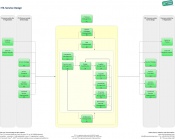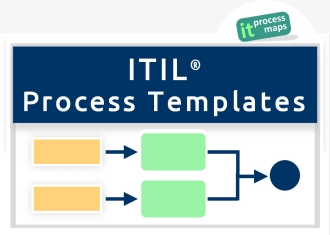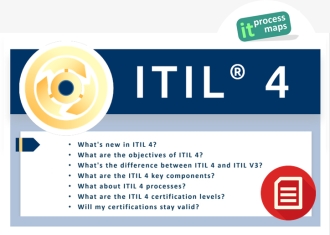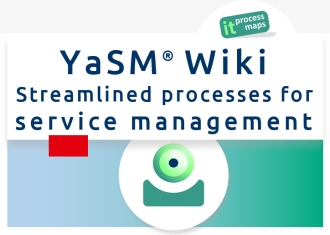ITIL Service Design: Difference between revisions
Replaced references to ITIL 2011 with ITIL V3. |
No edit summary |
||
| Line 11: | Line 11: | ||
<meta property="fb:admins" content="100002592864414" /> | <meta property="fb:admins" content="100002592864414" /> | ||
<meta property="og:image" content="https://wiki.en.it-processmaps.com/images/9/9b/Overview_service_design_itilv3_thumb.jpg" /> | <meta property="og:image" content="https://wiki.en.it-processmaps.com/images/9/9b/Overview_service_design_itilv3_thumb.jpg" /> | ||
<meta property="og:image:width" content=" | <meta property="og:image:width" content="558" /> | ||
<meta property="og:image:height" content=" | <meta property="og:image:height" content="931" /> | ||
<meta name="twitter:card" content="summary"> | |||
<meta name="twitter:site" content="@itprocessmaps"> | |||
<meta name="twitter:creator" content="@itprocessmaps"> | |||
<meta name="twitter:title" content="ITIL Service Design | IT Process Wiki"> | |||
<meta name="twitter:description" content="The scope of the Service Design lifecycle stage includes the design of new services, as well as changes and improvements to existing ones."> | |||
<meta name="twitter:image" content="https://wiki.en.it-processmaps.com/images/9/9b/Overview_service_design_itilv3_thumb.jpg"> | |||
<meta name="twitter:image:alt" content="Overview of the processes in ITIL Service Design: Design Coordination, Service Catalogue Management (SCM), Service Level Management (SLM), Risk Management, Capacity Management, Availability Management, IT Service Continuity Management, Information Security Management, Compliance Management, Architecture Management and Supplier Management."> | |||
<link href="https://plus.google.com/108613479011811316823/posts" rel="publisher" /> | <link href="https://plus.google.com/108613479011811316823/posts" rel="publisher" /> | ||
</itpmch> | </itpmch> | ||
| Line 30: | Line 37: | ||
'''<span id="ITIL_Service_Design_definition">Objective:</span>''' <html><span id="md-webpage-description" itemprop="description">The objective of <i>ITIL Service Design</i> is to design new IT services. The scope of the Service Design lifecycle stage includes the design of new services, as well as changes and improvements to existing ones.</span></p> | '''<span id="ITIL_Service_Design_definition">Objective:</span>''' <html><span id="md-webpage-description" itemprop="description">The objective of <i>ITIL Service Design</i> is to design new IT services. The scope of the Service Design lifecycle stage includes the design of new services, as well as changes and improvements to existing ones.</span></p> | ||
<p><b>Part of</b>: <a href="https://wiki.en.it-processmaps.com/index.php/ITIL_Processes# | <p><b>Part of</b>: <a href="https://wiki.en.it-processmaps.com/index.php/ITIL_Processes#ITIL_Processes_according_to_ITIL_V3" title="ITIL Processes">IT Service Management | ITIL processes</a></html> | ||
<p> </p> | <p> </p> | ||
| Line 37: | Line 44: | ||
==Processes: ITIL Service Design== | ==Processes: ITIL Service Design== | ||
Service Design identifies service requirements and devises new service offerings as well as changes and improvements to existing ones. | |||
<imagemap> | <imagemap> | ||
Image:overview_service_design_itilv3_thumb.jpg||right|[[#Processes:_ITIL_Service_Design|ITIL Service Design]] | Image:overview_service_design_itilv3_thumb.jpg||right|Fig. 1: [[#Processes:_ITIL_Service_Design|ITIL Service Design]]|450px|thumb|alt=ITIL Service Design | ||
rect | rect 230 91 332 162 [[Service Catalogue Management|Service Catalogue Management - Service Design]] | ||
rect | rect 230 198 332 270 [[Risk Management|Risk Management - Service Design]] | ||
rect | rect 60 311 159 377 [[Compliance Management|Compliance Management - Service Design]] | ||
rect | rect 60 384 158 453 [[Service Level Management|Service Level Management - Service Design]] | ||
rect | rect 218 385 318 456 [[ITIL Design Coordination|Design Coordination - Service Design]] | ||
rect | rect 356 383 458 454 [[Supplier Management|Supplier Management - Service Design]] | ||
rect | rect 356 462 458 529 [[Capacity Management|Capacity Management - Service Design]] | ||
rect | rect 356 536 458 608 [[Availability Management|Availability Management - Service Design]] | ||
rect | rect 356 614 458 683 [[IT Service Continuity Management|IT Service Continuity Management (ITSCM) - Service Design]] | ||
rect | rect 356 691 458 760 [[IT Security Management|Information Security Management - Service Design]] | ||
rect | rect 230 823 332 891 [[IT Architecture Management|Architecture Management - Service Design]] | ||
desc bottom-left | desc bottom-left | ||
</imagemap> | </imagemap> | ||
<html><div itemid="https://wiki.en.it-processmaps.com/index.php/ITIL_Service_Design#Processes:_ITIL_Service_Design" itemscope="itemscope" itemtype="https://schema.org/ItemList"><!-- define schema.org/ItemList --> | |||
<html><div itemscope="itemscope" itemtype="https://schema.org/ItemList"><!-- define schema.org/ItemList --> | |||
<meta itemprop="itemListOrder" content="Ascending" /> | <meta itemprop="itemListOrder" content="Ascending" /> | ||
<p><span itemprop="name" content="Service Design main processes | <p><span itemprop="name" content="Service Design main processes"><span id="ITIL-Service-Design-Processes">The ITIL service lifecycle stage of <strong class="selflink">Service Design</strong> (<a href="https://wiki.en.it-processmaps.com/images/9/9b/Overview_service_design_itilv3_thumb.jpg" title="ITIL Service Design">see fig. 1</a>) includes the following <strong>main processes</strong></span></span>: | ||
</p> | </p> | ||
<p> </p> | <p> </p> | ||
<dl><dt><a href="/index.php/ITIL_Design_Coordination" title="ITIL Design Coordination" itemprop="itemListElement">Design Coordination</a> | |||
<div itemid="https://wiki.en.it-processmaps.com/index.php/ITIL_Design_Coordination" itemprop="itemListElement" itemscope itemtype="http://schema.org/ListItem" > | |||
<meta itemprop="position" content="1" /> | |||
<dl><dt itemprop="name"><a itemprop="url" href="https://wiki.en.it-processmaps.com/index.php/ITIL_Design_Coordination" title="ITIL Design Coordination" itemprop="itemListElement">Design Coordination</a> | |||
</dt><dd itemprop="description">Process Objective: To coordinate all service design activities, processes and resources. Design coordination ensures the consistent and effective design of new or changed IT services, service management information systems, architectures, technology, processes, information and metrics. | </dt><dd itemprop="description">Process Objective: To coordinate all service design activities, processes and resources. Design coordination ensures the consistent and effective design of new or changed IT services, service management information systems, architectures, technology, processes, information and metrics. | ||
</dd></dl> | </dd></dl></div> | ||
<p><br /> | <p><br /> | ||
</p> | </p> | ||
<dl><dt><a href="/index.php/Service_Catalogue_Management" title="Service Catalogue Management" itemprop="itemListElement">Service Catalogue Management</a> | |||
<div itemid="https://wiki.en.it-processmaps.com/index.php/Service_Catalogue_Management" itemprop="itemListElement" itemscope itemtype="http://schema.org/ListItem" > | |||
<meta itemprop="position" content="2" /> | |||
<dl><dt itemprop="name"><a itemprop="url" href="https://wiki.en.it-processmaps.com/index.php/Service_Catalogue_Management" title="Service Catalogue Management" itemprop="itemListElement">Service Catalogue Management (SCM)</a> | |||
</dt><dd itemprop="description">Process Objective: To ensure that a Service Catalogue is produced and maintained, containing accurate information on all operational services and those being prepared to be run operationally. Service Catalogue Management provides vital information for all other Service Management processes: Service details, current status and the services' interdependencies. | </dt><dd itemprop="description">Process Objective: To ensure that a Service Catalogue is produced and maintained, containing accurate information on all operational services and those being prepared to be run operationally. Service Catalogue Management provides vital information for all other Service Management processes: Service details, current status and the services' interdependencies. | ||
</dd></dl> | </dd></dl></div> | ||
<p><br /> | <p><br /> | ||
</p> | </p> | ||
<dl><dt><a href="/index.php/Service_Level_Management" title="Service Level Management" itemprop="itemListElement">Service Level Management</a> | |||
<div itemid="https://wiki.en.it-processmaps.com/index.php/Service_Level_Management" itemprop="itemListElement" itemscope itemtype="http://schema.org/ListItem" > | |||
<meta itemprop="position" content="3" /> | |||
<dl><dt itemprop="name"><a itemprop="url" href="https://wiki.en.it-processmaps.com/index.php/Service_Level_Management" title="Service Level Management" itemprop="itemListElement">Service Level Management (SLM)</a> | |||
</dt><dd itemprop="description">Process Objective: To negotiate Service Level Agreements with the customers and to design services in accordance with the agreed service level targets. Service Level Management is also responsible for ensuring that all Operational Level Agreements and Underpinning Contracts are appropriate, and to monitor and report on service levels. | </dt><dd itemprop="description">Process Objective: To negotiate Service Level Agreements with the customers and to design services in accordance with the agreed service level targets. Service Level Management is also responsible for ensuring that all Operational Level Agreements and Underpinning Contracts are appropriate, and to monitor and report on service levels. | ||
</dd></dl> | </dd></dl></div> | ||
<p><br /> | <p><br /> | ||
</p> | </p> | ||
<dl><dt><a href="/index.php/Risk_Management" title="Risk Management" itemprop="itemListElement">Risk Management</a> | |||
<div itemid="https://wiki.en.it-processmaps.com/index.php/Risk_Management" itemprop="itemListElement" itemscope itemtype="http://schema.org/ListItem" > | |||
<meta itemprop="position" content="4" /> | |||
<dl><dt itemprop="name"><a itemprop="url" href="https://wiki.en.it-processmaps.com/index.php/Risk_Management" title="Risk Management" itemprop="itemListElement">Risk Management</a> | |||
</dt><dd itemprop="description">Process Objective: To identify, assess and control risks. This includes analyzing the value of assets to the business, identifying threats to those assets, and evaluating how vulnerable each asset is to those threats. | </dt><dd itemprop="description">Process Objective: To identify, assess and control risks. This includes analyzing the value of assets to the business, identifying threats to those assets, and evaluating how vulnerable each asset is to those threats. | ||
</dd></dl> | </dd></dl></div> | ||
<p><br /> | <p><br /> | ||
</p> | </p> | ||
<dl><dt><a href="/index.php/Capacity_Management" title="Capacity Management" itemprop="itemListElement">Capacity Management</a> | |||
<div itemid="https://wiki.en.it-processmaps.com/index.php/Capacity_Management" itemprop="itemListElement" itemscope itemtype="http://schema.org/ListItem" > | |||
<meta itemprop="position" content="5" /> | |||
<dl><dt itemprop="name"><a itemprop="url" href="https://wiki.en.it-processmaps.com/index.php/Capacity_Management" title="Capacity Management" itemprop="itemListElement">Capacity Management</a> | |||
</dt><dd itemprop="description">Process Objective: To ensure that the capacity of IT services and the IT infrastructure is able to deliver the agreed service level targets in a cost effective and timely manner. Capacity Management considers all resources required to deliver the IT service, and plans for short, medium and long term business requirements. | </dt><dd itemprop="description">Process Objective: To ensure that the capacity of IT services and the IT infrastructure is able to deliver the agreed service level targets in a cost effective and timely manner. Capacity Management considers all resources required to deliver the IT service, and plans for short, medium and long term business requirements. | ||
</dd></dl> | </dd></dl></div> | ||
<p><br /> | <p><br /> | ||
</p> | </p> | ||
<dl><dt><a href="/index.php/Availability_Management" title="Availability Management" itemprop="itemListElement">Availability Management</a> | |||
<div itemid="https://wiki.en.it-processmaps.com/index.php/Availability_Management" itemprop="itemListElement" itemscope itemtype="http://schema.org/ListItem" > | |||
<meta itemprop="position" content="6" /> | |||
<dl><dt itemprop="name"><a itemprop="url" href="https://wiki.en.it-processmaps.com/index.php/Availability_Management" title="Availability Management" itemprop="itemListElement">Availability Management</a> | |||
</dt><dd itemprop="description">Process Objective: To define, analyze, plan, measure and improve all aspects of the availability of IT services. Availability Management is responsible for ensuring that all IT infrastructure, processes, tools, roles etc. are appropriate for the agreed availability targets. | </dt><dd itemprop="description">Process Objective: To define, analyze, plan, measure and improve all aspects of the availability of IT services. Availability Management is responsible for ensuring that all IT infrastructure, processes, tools, roles etc. are appropriate for the agreed availability targets. | ||
</dd></dl> | </dd></dl></div> | ||
<p><br /> | <p><br /> | ||
</p> | </p> | ||
<dl><dt><a href="/index.php/IT_Service_Continuity_Management" title="IT Service Continuity Management" itemprop="itemListElement">IT Service Continuity Management</a> | |||
<div itemid="https://wiki.en.it-processmaps.com/index.php/IT_Service_Continuity_Management" itemprop="itemListElement" itemscope itemtype="http://schema.org/ListItem" > | |||
<meta itemprop="position" content="7" /> | |||
<dl><dt itemprop="name"><a itemprop="url" href="https://wiki.en.it-processmaps.com/index.php/IT_Service_Continuity_Management" title="IT Service Continuity Management" itemprop="itemListElement">IT Service Continuity Management (ITSCM)</a> | |||
</dt><dd itemprop="description">Process Objective: To manage risks that could seriously impact IT services. ITSCM ensures that the IT service provider can always provide minimum agreed Service Levels, by reducing the risk from disaster events to an acceptable level and planning for the recovery of IT services. ITSCM should be designed to support Business Continuity Management. | </dt><dd itemprop="description">Process Objective: To manage risks that could seriously impact IT services. ITSCM ensures that the IT service provider can always provide minimum agreed Service Levels, by reducing the risk from disaster events to an acceptable level and planning for the recovery of IT services. ITSCM should be designed to support Business Continuity Management. | ||
</dd></dl> | </dd></dl></div> | ||
<p><br /> | <p><br /> | ||
</p> | </p> | ||
<dl><dt><a href="/index.php/IT_Security_Management" title="IT Security Management" itemprop="itemListElement">Information Security Management</a> | |||
<div itemid="https://wiki.en.it-processmaps.com/index.php/IT_Security_Management" itemprop="itemListElement" itemscope itemtype="http://schema.org/ListItem" > | |||
<meta itemprop="position" content="8" /> | |||
<dl><dt itemprop="name"><a itemprop="url" href="https://wiki.en.it-processmaps.com/index.php/IT_Security_Management" title="IT Security Management" itemprop="itemListElement">Information Security Management</a> | |||
</dt><dd itemprop="description">Process Objective: To ensure the confidentiality, integrity and availability of an organization's information, data and IT services. Information Security Management usually forms part of an organizational approach to security management which has a wider scope than the IT Service Provider. | </dt><dd itemprop="description">Process Objective: To ensure the confidentiality, integrity and availability of an organization's information, data and IT services. Information Security Management usually forms part of an organizational approach to security management which has a wider scope than the IT Service Provider. | ||
</dd></dl> | </dd></dl></div> | ||
<p><br /> | <p><br /> | ||
</p> | </p> | ||
<dl><dt><a href="/index.php/Compliance_Management" title="Compliance Management" itemprop="itemListElement">Compliance Management</a> | |||
<div itemid="https://wiki.en.it-processmaps.com/index.php/Compliance_Management" itemprop="itemListElement" itemscope itemtype="http://schema.org/ListItem" > | |||
<meta itemprop="position" content="9" /> | |||
<dl><dt itemprop="name"><a itemprop="url" href="https://wiki.en.it-processmaps.com/index.php/Compliance_Management" title="Compliance Management" itemprop="itemListElement">Compliance Management</a> | |||
</dt><dd itemprop="description">Process Objective: To ensure IT services, processes and systems comply with enterprise policies and legal requirements. | </dt><dd itemprop="description">Process Objective: To ensure IT services, processes and systems comply with enterprise policies and legal requirements. | ||
</dd></dl> | </dd></dl></div> | ||
<p><br /> | <p><br /> | ||
</p> | </p> | ||
<dl><dt><a href="/index.php/IT_Architecture_Management" title="IT Architecture Management" itemprop="itemListElement">Architecture Management</a> | |||
<div itemid="https://wiki.en.it-processmaps.com/index.php/IT_Architecture_Management" itemprop="itemListElement" itemscope itemtype="http://schema.org/ListItem" > | |||
<meta itemprop="position" content="10" /> | |||
<dl><dt itemprop="name"><a itemprop="url" href="https://wiki.en.it-processmaps.com/index.php/IT_Architecture_Management" title="IT Architecture Management" itemprop="itemListElement">Architecture Management</a> | |||
</dt><dd itemprop="description">Process Objective: To define a blueprint for the future development of the technological landscape, taking into account the service strategy and newly available technologies. | </dt><dd itemprop="description">Process Objective: To define a blueprint for the future development of the technological landscape, taking into account the service strategy and newly available technologies. | ||
</dd></dl> | </dd></dl></div> | ||
<p><br /> | <p><br /> | ||
</p> | </p> | ||
<dl><dt><a href="/index.php/Supplier_Management" title="Supplier Management" itemprop="itemListElement">Supplier Management</a> | |||
<div itemid="https://wiki.en.it-processmaps.com/index.php/Supplier_Management" itemprop="itemListElement" itemscope itemtype="http://schema.org/ListItem" > | |||
<meta itemprop="position" content="11" /> | |||
<dl><dt itemprop="name"><a itemprop="url" href="https://wiki.en.it-processmaps.com/index.php/Supplier_Management" title="Supplier Management" itemprop="itemListElement">Supplier Management</a> | |||
</dt><dd itemprop="description">Process Objective: To ensure that all contracts with suppliers support the needs of the business, and that all suppliers meet their contractual commitments. | </dt><dd itemprop="description">Process Objective: To ensure that all contracts with suppliers support the needs of the business, and that all suppliers meet their contractual commitments. | ||
</dd></dl> | </dd></dl></div> | ||
</div><!-- end of schema.org/ItemList --><p></html> | </div><!-- end of schema.org/ItemList --><p></html> | ||
<p> </p> | <p> </p> | ||
| Line 176: | Line 216: | ||
<!-- define schema.org/WebPage --> <span itemscope itemtype="https://schema.org/WebPage" itemref="md-webpage-description"> | <!-- define schema.org/WebPage --> <span itemscope itemtype="https://schema.org/WebPage" itemref="md-webpage-description"> | ||
<meta itemprop="name" content="ITIL Service Design" /> | <meta itemprop="name Headline" content="ITIL Service Design" /> | ||
<meta itemprop="alternativeHeadline" content="Service Design" /> | <meta itemprop="alternativeHeadline" content="Service Design" /> | ||
<link itemprop="url" href="https://wiki.en.it-processmaps.com/index.php/ITIL_Service_Design" /> | <link itemprop="url" href="https://wiki.en.it-processmaps.com/index.php/ITIL_Service_Design" /> | ||
<link itemprop="primaryImageOfPage" href="https://wiki.en.it-processmaps.com/images/9/9b/Overview_service_design_itilv3_thumb.jpg" /> | |||
<span itemid="https://wiki.en.it-processmaps.com/images/9/9b/Overview_service_design_itilv3_thumb.jpg" itemprop="image" itemscope itemtype="https://schema.org/ImageObject"> | |||
<meta itemprop="caption" content="ITIL Service Design main processes."> | |||
<meta itemprop="contentUrl" content="https://wiki.en.it-processmaps.com/images/9/9b/Overview_service_design_itilv3_thumb.jpg" /> | |||
<meta itemprop="width" content="558" /> | |||
<meta itemprop="height" content="931" /> | |||
<meta itemprop="representativeOfPage" content="true"/> | |||
<meta itemprop="dateCreated" content="2011-12-18" /> | |||
<meta itemprop="dateModified" content="2019-09-21" /> | |||
<meta itemprop="keywords" content="Service Design" /> | |||
</span> | |||
<meta itemprop="inLanguage" content="en" /> | <meta itemprop="inLanguage" content="en" /> | ||
<link itemprop="citation" href="https://wiki.de.it-processmaps.com/index.php/ITIL_Service_Design" /> | <link itemprop="citation" href="https://wiki.de.it-processmaps.com/index.php/ITIL_Service_Design" /> | ||
<link itemprop="citation" href="https://wiki.es.it-processmaps.com/index.php/ITIL_Dise%C3%B1o_del_Servicio" /> | <link itemprop="citation" href="https://wiki.es.it-processmaps.com/index.php/ITIL_Dise%C3%B1o_del_Servicio" /> | ||
<link itemprop="isPartOf" href="https://wiki.en.it-processmaps.com/index.php/ITIL_Processes#ITIL_Processes_according_to_ITIL_V3" /> | <link itemprop="isPartOf" href="https://wiki.en.it-processmaps.com/index.php/ITIL_Processes#ITIL_Processes_according_to_ITIL_V3" /> | ||
<link itemprop="author" href="https://www.linkedin.com/in/stefankempter" /> | <link itemprop="author" href="https://www.linkedin.com/in/stefankempter" /> | ||
<meta itemprop="author" content="Stefan Kempter" /> | <meta itemprop="author" content="Stefan Kempter" /> | ||
Revision as of 17:45, 21 September 2019


Objective: The objective of ITIL Service Design is to design new IT services. The scope of the Service Design lifecycle stage includes the design of new services, as well as changes and improvements to existing ones.
Part of: IT Service Management | ITIL processes
Processes: ITIL Service Design
Service Design identifies service requirements and devises new service offerings as well as changes and improvements to existing ones.

The ITIL service lifecycle stage of Service Design (see fig. 1) includes the following main processes:
- Design Coordination
- Process Objective: To coordinate all service design activities, processes and resources. Design coordination ensures the consistent and effective design of new or changed IT services, service management information systems, architectures, technology, processes, information and metrics.
- Service Catalogue Management (SCM)
- Process Objective: To ensure that a Service Catalogue is produced and maintained, containing accurate information on all operational services and those being prepared to be run operationally. Service Catalogue Management provides vital information for all other Service Management processes: Service details, current status and the services' interdependencies.
- Service Level Management (SLM)
- Process Objective: To negotiate Service Level Agreements with the customers and to design services in accordance with the agreed service level targets. Service Level Management is also responsible for ensuring that all Operational Level Agreements and Underpinning Contracts are appropriate, and to monitor and report on service levels.
- Risk Management
- Process Objective: To identify, assess and control risks. This includes analyzing the value of assets to the business, identifying threats to those assets, and evaluating how vulnerable each asset is to those threats.
- Capacity Management
- Process Objective: To ensure that the capacity of IT services and the IT infrastructure is able to deliver the agreed service level targets in a cost effective and timely manner. Capacity Management considers all resources required to deliver the IT service, and plans for short, medium and long term business requirements.
- Availability Management
- Process Objective: To define, analyze, plan, measure and improve all aspects of the availability of IT services. Availability Management is responsible for ensuring that all IT infrastructure, processes, tools, roles etc. are appropriate for the agreed availability targets.
- IT Service Continuity Management (ITSCM)
- Process Objective: To manage risks that could seriously impact IT services. ITSCM ensures that the IT service provider can always provide minimum agreed Service Levels, by reducing the risk from disaster events to an acceptable level and planning for the recovery of IT services. ITSCM should be designed to support Business Continuity Management.
- Information Security Management
- Process Objective: To ensure the confidentiality, integrity and availability of an organization's information, data and IT services. Information Security Management usually forms part of an organizational approach to security management which has a wider scope than the IT Service Provider.
- Compliance Management
- Process Objective: To ensure IT services, processes and systems comply with enterprise policies and legal requirements.
- Architecture Management
- Process Objective: To define a blueprint for the future development of the technological landscape, taking into account the service strategy and newly available technologies.
- Supplier Management
- Process Objective: To ensure that all contracts with suppliers support the needs of the business, and that all suppliers meet their contractual commitments.
KPIs | Templates | Roles
Downloads
|
Use the following links to open the process overview of Service Design showing the most important interfaces: |
 |
Notes
By: Stefan Kempter ![]() , IT Process Maps.
, IT Process Maps.
Design Coordination › Service Catalogue Mgmt. › SLM › Risk Mgmt. › Capacity Mgmt. › [...] › Supplier Mgmt.






